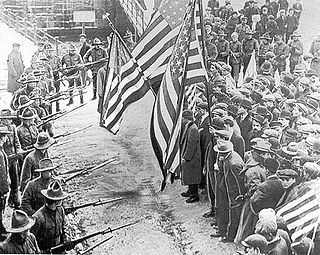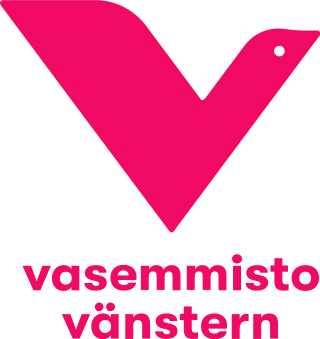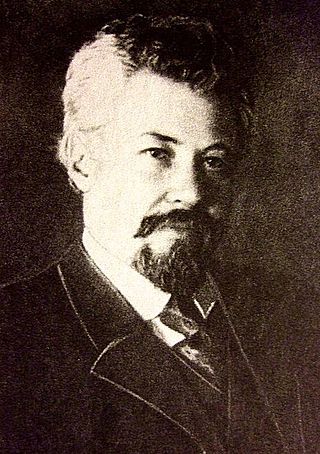A Jacobin was a member of the Jacobin Club, a revolutionary political movement that was the most famous political club during the French Revolution (1789–1799). The club got its name from meeting at the Dominican rue Saint-Honoré Monastery of the Jacobins. The Dominicans in France were called Jacobins because their first house in Paris was the Saint Jacques Monastery.

Left-wing politics describes the range of political ideologies that support and seek to achieve social equality and egalitarianism, often in opposition to social hierarchy as a whole or certain social hierarchies. Left-wing politics typically involve a concern for those in society whom its adherents perceive as disadvantaged relative to others as well as a belief that there are unjustified inequalities that need to be reduced or abolished through radical means that change the nature of the society they are implemented in. According to emeritus professor of economics Barry Clark, supporters of left-wing politics "claim that human development flourishes when individuals engage in cooperative, mutually respectful relations that can thrive only when excessive differences in status, power, and wealth are eliminated."

The Democratic Left Alliance was a social-democratic political party in Poland. It was formed on 9 July 1991 as an electoral alliance of centre-left parties, and became a single party on 15 April 1999. It was the major coalition party in Poland between 1993 and 1997, and between 2001 and 2005, with four Prime ministers coming from the party: Józef Oleksy, Włodzimierz Cimoszewicz, Leszek Miller and Marek Belka. It then faded into opposition, overshadowed by the rise of Civic Platform and Law and Justice.

The Left Alliance is a socialist political party in Finland.

The Portuguese Communist Party is a communist, Marxist–Leninist political party in Portugal based upon democratic centralism. The party also considers itself patriotic and internationalist, and it is characterized as being between the left-wing and far-left on the political spectrum.

Self-Defence of the Republic of Poland is a nationalist, socialist, populist, and agrarian political party and trade union in Poland. The party promotes agrarian socialist and Catholic socialist economic policies combined with a left-wing populist, anti-globalization and anti-neoliberal rhetoric. The party describes itself as left-wing, although it stresses that it belongs to the "patriotic left" and follows Catholic social teaching. The party is sympathetic to Communist Poland, which led political scientists to label the party as neocommunist, post-communist, and far-left.

Elections to the Russian Constituent Assembly were held on 25 November 1917, although some districts had polling on alternate days, around two months after they were originally meant to occur, having been organized as a result of events in the February Revolution. They are generally recognised to be the first free elections in Russian history. The dissolution of the Constituent Assembly was also approved by the Left Socialist Revolutionaries and anarchists; both groups were in favour of a more extensive democracy.
Popular socialism or people's socialism is a distinct form of socialism in various countries.

The Coalition of the Radical Left – Progressive Alliance, best known by the syllabic abbreviation SYRIZA, is a centre-left to left-wing political party in Greece. It was founded in 2004 as a political coalition of left-wing and radical left parties, and registered as a political party in 2012.

LMP – Hungary's Green Party is a green-liberal political party in Hungary. Founded in 2009, it was one of four parties to win seats in the National Assembly in the 2010 parliamentary election. It is a member of the Global Greens, and suspended member of the European Green Party.

Left-wing populism, also called social populism, is a political ideology that combines left-wing politics with populist rhetoric and themes. Its rhetoric often includes elements of anti-elitism, opposition to the Establishment, and speaking for the "common people". Recurring themes for left-wing populists include economic democracy, social justice, and scepticism of globalization. Socialist theory plays a lesser role than in traditional left-wing ideologies.

A popular front is "any coalition of working-class and middle-class parties", including liberal and social democratic ones, "united for the defense of democratic forms" against "a presumed Fascist assault". More generally, it is "a coalition especially of leftist political parties against a common opponent".

The Táncsics – Radical Left Party was a left-wing democratic socialist political party in Hungary. It was formed at a meeting in March 2014. It drew its membership from different civil society organizations as well as former members of the Hungarian Socialist Party and the Green Left.

Our Homeland Movement is a Hungarian far-right political party. It was founded by Ásotthalom mayor and former Jobbik Vice-President, László Toroczkai, along with other Jobbik dissidents that left the organization after the party's leadership moved away from its radical beginnings.

The Left is a political alliance in Poland. Initially founded to contest the 2019 parliamentary election, the alliance now consists of the New Left and Left Together.

The Left Bloc was a social movement uniting activists of the Russian left organizations. It was created at the end of November 2015 from a split in the Left Front. It is strongly critical of President Vladimir Putin.

The Social Movement is a Ukrainian left-wing community organization founded in 2015, which stands on the principles of democratic socialism, opposing capitalism and xenophobia. It operates in the largest cities of Ukraine. The group is aspiring to become a grassroots political party and came to some prominence during the 2022 Russian invasion of Ukraine when it called upon the international left to support the Ukrainian resistance to Russian imperialism and campaigned against wartime curtailing of certain labour rights by the Ukrainian government.















